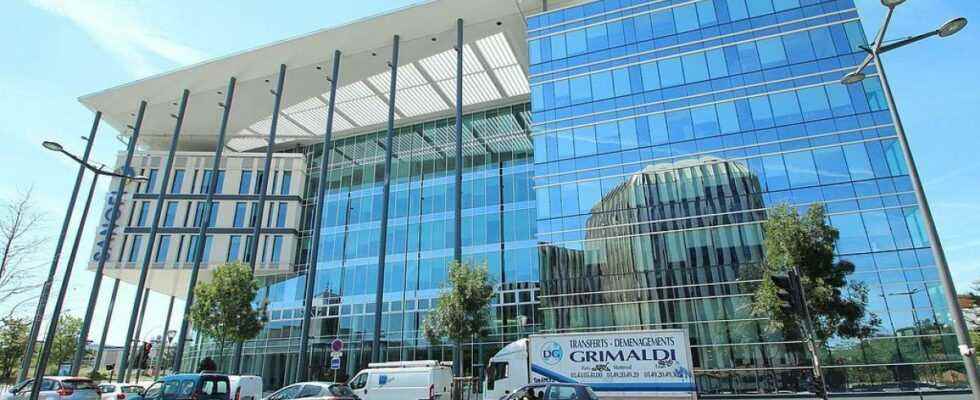(AOF) – The Sanofi title ended Tuesday’s session down (-1.41% to 95.48 euros). The pharmaceutical laboratory is penalized by the suspension of recruitment for clinical trials of tolebrutinib, an experimental treatment for multiple sclerosis (MS) and by UBS. The broker downgraded its opinion on the value from Buy to Neutral and reduced its target price from 118 to 103 euros. He expects earnings growth to slow in 2023 due to difficulties with amcenestrant, a breast cancer treatment, and tolebrutinib.
Sanofi has announced the suspension of recruitment for clinical trials of tolebrutinib, an experimental treatment for certain forms of multiple sclerosis and myasthenia gravis.
The FDA’s Independent Data Monitoring Committee (iDMC), responsible for overseeing clinical trials of tolebrutinib, has requested the suspension of recruitment of all such trials worldwide.
At the end of June, the American health authority had already requested a partial suspension of the trials in the United States after several cases of liver damage linked to the treatment.
Per the iDMC recommendation, all participants currently receiving tolebrutinib in all studies will continue treatment according to the trial protocols, Sanofi said.
The group assures that it is working closely with the regulatory authorities in order to resume active recruitment during the fourth quarter of 2022.
Sanofi is committed to providing the FDA with the requested information by the end of September 2022.
Also adds the company, the regulatory deadlines for this indication remain unchanged with a submission in recurrent MS scheduled for 2024.
AOF – LEARN MORE
Key points
– 5
th
global pharmaceutical group, created in 1994, first in Europe, and 1
er
worldwide in vaccines;
– Balanced sales of €37.8 billion from 4 divisions: general medicine for 34%, specialty medicine (immunology, neurology and oncology) for 35%, vaccines for 20% and consumer healthcare;
– Growing share of emerging countries (34% of sales) behind the United States (38%) and Europe (28%);
– Business model in 4 points: a simplified organization, a restructured portfolio containing more organic products, a transformed R&D and strong ambitions in terms of profitability and financial solidity; –
– Split capital (excluding L’Oréal: 9.48% of shares and 16.95% of voting rights), Serge Weinberg chairing the 16-member board of directors, Paul Hudson being CEO;
– Healthy balance sheet with net debt reduced to €8.8 billion and free cash flow of €8.1 billion.
Challenges
– 2020-2025 “Play to win” plan aiming to create an agile group and world number 2, and articulated in 2 phases: 2020/22: operating margin of 30%, €2.5 billion in cost savings / 2023 /25: reduction of 1/3 of product families and productivity driven by R&D and digital in factories, operating margin of 32%;
– Innovation strategy: 5 areas of research: immunology & inflammation, oncology, neurology (particularly sclerosis), rare hematological diseases & rare diseases, vaccines / 91 ongoing projects including 29 in phase 3 and 5 awaiting approval by the authorities / developed in collaboration -Kymera for immunology, Translate Bio in RNA for vaccines- or by acquisitions -Kiadis, Biopharma, Kymab for oncology / supported by technological platforms: small molecules, antibodies, hemogenetic proteins, genomics ;
– Planet Mobilization environmental strategy aiming for 2030 carbon neutrality in 2030, 100% sustainable electricity consumption against 50% in 2021 and 100% sustainable car fleet against 22% / in 2027, elimination of plastic packaging for vaccines / in 2025, eco-design of all new products / launch of lines of credit indexed to sustainable development;
– Impact of the 5 “priority” drugs: Amcenestrant (breast cancer), Fitusiran (RNA for hemophilia), Efanesoctocog (hemophilia), Nirsevimab and Nisevimab (respiratory viruses) and Tolebrutinib (multiple sclerosis):
– After Origimm, specialized in research on skin conditions, Kadmon and Owkin, agreement to acquire Amunix in immuno-oncology, strengthening the R&D portfolio of biological agents.
Challenges
– Image tarnished by the delay of the vaccine against Covid 19;
– IPO of EUROAPI, a group created from the group’s activities in the production of active pharmaceutical ingredients or APIs in Europe, shareholders receiving 1 EUROAPI share for 23 shares and the capital being divided between Sanofi for 30% and BPIFrance for 12 %;
– 2022 objective of growth of at least 10% in earnings per share;
– 2021 dividend of €3.33.
An inevitable race for new blockbusters
The patent for Merck’s star product, the cancer drug Keytruda, which accounts for more than 35% of its sales, expires in 2028. Despite the loss, since 2019, of the patents for its three star products (Avastin, Herceptine, Rituxan) Roche was able to renew its portfolio by bringing new molecules to market. However, the discovery and launch of new drugs are increasingly expensive. AstraZeneca spends about $6 billion a year on R&D in a pharmaceutical industry where the life of a patent only lasts ten to fifteen years. This leads laboratories to withdraw from certain activities. Thus J&J, Pfizer, GSK and, no doubt, Novartis soon prefer to refocus on specialty drugs and abandon any ancillary activity.
